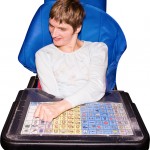
Oral motor difficulties in children and young people with learning disabilities can lead to saliva overflow, commonly called drooling. With young people with profound intellectual and multiple disabilities, this can increase the risk of inhaling saliva, food, or fluids into the lungs. Our friends at the Dental Elf came across this systematic review of interventions [read the full story…]








